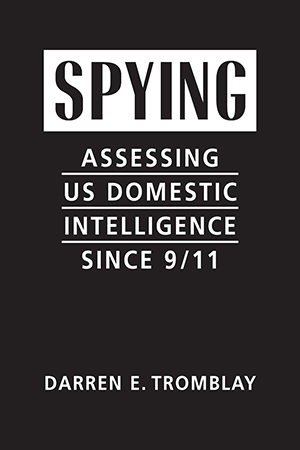
- 2019/245 pages
Spying:
Assessing US Domestic Intelligence Since 9/11
Hardcover: $29.95
ISBN: 978-1-62637-780-6
Ebook: $29.95
ISBN: 978-1-62637-991-6
Initiated in the aftermath of the September 11 terrorist attacks, have the reforms of the US intelligence enterprise served their purpose? What have been the results of the creation of the Department of Homeland Security, the Office of the Director of National Intelligence, and a reorganized FBI? Have they helped to reduce blind spots and redundancies in resources and responsibilities ... and to prevent misuses of intelligence and law enforcement? How did a disaster like the Snowden scandal happen?
Darren Tromblay answers these questions in his thorough, often provocative, assessment of post–9/11 US domestic intelligence activities in the pursuit of national security.
Darren Tromblay answers these questions in his thorough, often provocative, assessment of post–9/11 US domestic intelligence activities in the pursuit of national security.







